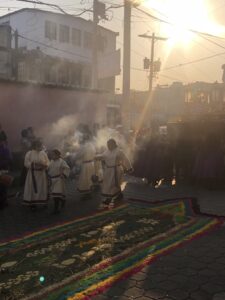 Welcome to the website of the RESILIENCE project
Welcome to the website of the RESILIENCE project
Resilience is shorthand for ‘grass root resilience to urban violence in Latin America’. We want to understand how residents and groups in poor or excluded neighborhoods in violent cities deal with violence by creating non-violent spaces and practices. We see resilience as not limited to ‘getting by under’ or ‘bouncing back from’ violence or mitigating its impact, but also as the recovery of non-violence in a more sustainable sense or the potential for long term transformation of the factors that generate violence.
We are a group of researchers based at the Department of Anthropology of Utrecht University and, as collaborating researchers, in partner institutions in Latin America. The RESILIENCE project is funded by the Netherlands Organization for Scientific Research (NWO in Dutch) and Utrecht University. We officially started the project in November 2023 for a period of four years, until October 2027.
About
The aim of this research project is to understand strategies, practices, experiences and impact of various modalities of grass roots’ resilience against protracted or chronic urban violence and insecurity in Latin America. The main focus is on collective modes of resilience in and by communities within the so-called ‘urban margins’. However, these modes of resilience will be studied in connection to two other dimensions of urban resilience pertinent to communities in the urban margins: urban security governance, and urbanism, that is to say, socio-spatial and socio-material interventions in the urban assemblage.
The project combines insights from various subfields of study at the intersection of conflict studies, urban development studies, and urban political anthropology, namely:
- Endemic urban violence as a hybrid form of protracted armed conflict and strategies of conflict resolution and peacemaking;
- The socio-spatial, political and cultural dimensions of urban inequality and exclusion and the way these are entangled with violence, insecurity, and fear in (Latin American) cities;
- Urban resilience as a multi-scalar set of strategies, practices, and emerging outcomes to navigate or overcome violence, insecurity, and fear.
The design of the project rests on comparative qualitative case studies in three Latin American cities that exemplify various modes of community resilience, in different settings of conflict and violence, and with key differences in their security governance and the urban assemblage. The cities are Medellín (Colombia), Rio de Janeiro (Brazil), and Guatemala City (Guatemala).

